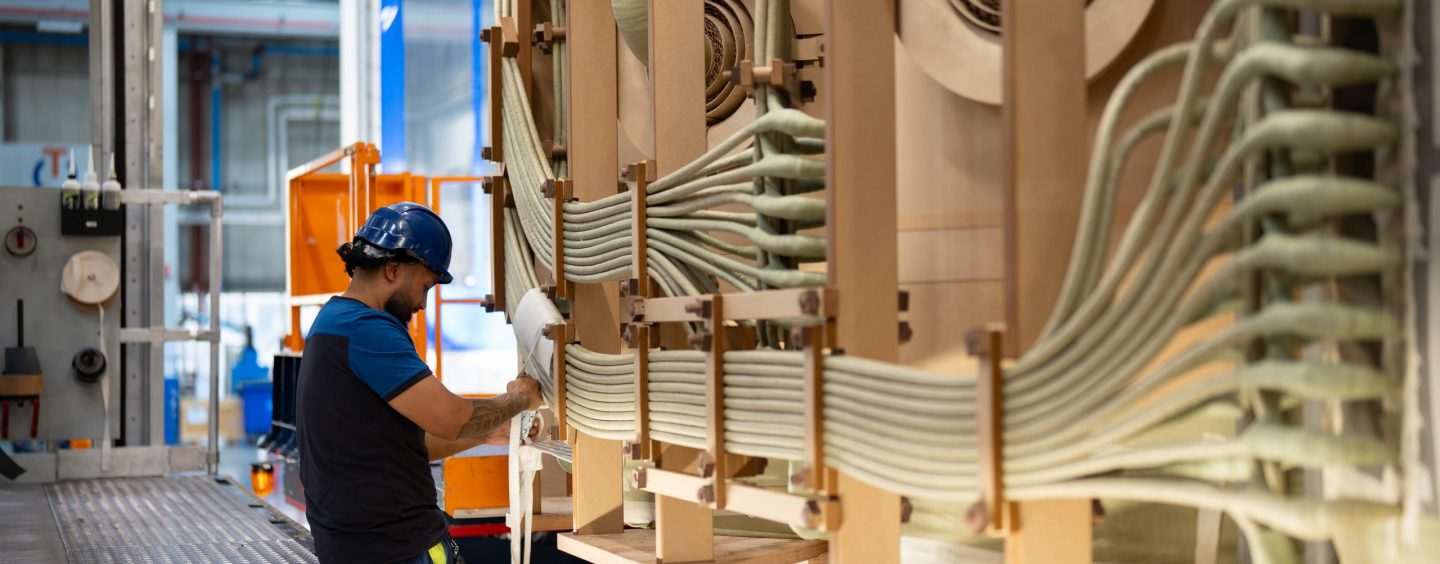
Yokogawa power analyzers boost confidence in transformer loss measurement
by Yokogawa Test&Measurement October 1, 2024Transformers are less visible than the pylons and cables that carry electricity from where it is generated to homes, offices and factories, but the part they play is just as important. In local networks, transformers are responsible for converting from the high transmission voltage required for long-distance transmission to the 240 V or 120 V at which electricity is supplied to end users.
Reliability isn’t the only thing that operators of electricity distribution networks look for when commissioning new transformer equipment. Their customers only pay for the energy that’s actually delivered to their homes or premises, so any losses experienced during distribution need to be as small as possible.
With this in mind, the specification for new transformer equipment will include maximum limits for the losses that are incurred during normal operation. If these guaranteed values aren’t met, the manufacturer can be liable to significant financial penalties.
The test regime under which losses in a new transformer are measured is strictly governed by international standards that define the methods to be used. An important element of this is that measurements have to include ‘virtual’ losses attributable to uncertainty in the measurement system as well as the actual the real losses experienced during voltage conversion.
That makes having test equipment which is as accurate as possible a high priority for manufacturers like Royal SMIT Transformers B.V., a manufacturer based in the Dutch city of Nijmegen that supplies large, high-voltage transformers to energy generation and energy transmission companies all over the world.
Royal SMIT’s products play a crucial role in the reliable and efficient operation of power networks that serve hundreds of millions of residential and commercial users, and nearly every one of them is custom engineered to order. Compliance with specifications is measured in sophisticated test bays equipped with high-voltage reference capacitors, current transformers and precision power analyzers.
When Royal SMIT decided to build a new test facility, part of the solution was a loss-measurement system that incorporates Yokogawa’s WT5000 power analyzer – Transformer version.
The WT5000 Transformer Version’s exceptional accuracy of just ±0.008% at a power factor of 1 restricts measurement error to a negligible fraction of total measured losses. One of the features that contributes to this degree of accuracy and long-term stability is a special aging treatment. After being calibrated at a range of power factors, additional calibration at a higher frequency ensures the required performance when measuring distorted waveforms that can be encountered when measuring no-load loss currents.
Other features include an intuitive user interface with the ability to define and use event triggers and custom computations. Measurements can be viewed in numeric, waveform, bar, vector or trend formats, while multiple interface options support a range of communication protocols.
The WT5000 Transformer Version has helped Royal SMIT reduce measurement error significantly. Calibration certificates from Yokogawa’s ISO 17025 accredited laboratory give Royal SMIT’s engineers the confidence that they can consistently produce traceable low power-factor measurements that comply with international test standards.
The WT5000 has operated completely trouble free, and that measurement channels hardly need to be adjusted at all, even though the instrument can be running for days at a time, reports Steven Lauf, Senior Test Engineer at Royal SMIT.
“By installing the WT5000 Transformer Version in our test system, we can characterize the performance of every custom design more accurately than ever. This gives us the ability to offer the customer a guaranteed loss performance that is better than a competitor might be offering, and to do so with high confidence that we will deliver what we promised.”
Get full access to the case study here.
This material maybe not be reproduced without express permission from Yokogawa, please contact: PrecisionMaking.EU@yokogawa.com


No Comments so far
Jump into a conversationNo Comments Yet!
You can be the one to start a conversation.